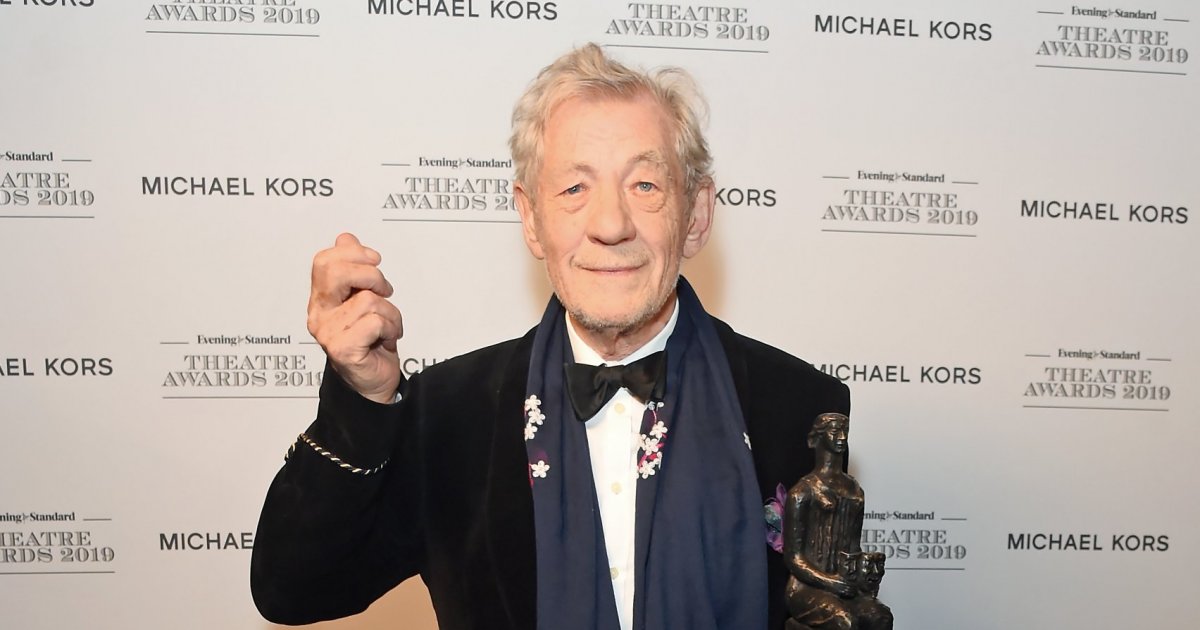Still Monitoring Prostate Cancer, McKellen Gets COVID-19 Vaccine
- The actor, 81, was diagnosed with prostate cancer in 2006 and started active surveillance, which allows men with low-risk prostate cancer avoid the side effects of surgery, radiation, or chemotherapy with close observation.
- McKellen is one of the first British citizens to receive the COVID-19 vaccine due to his advanced age.
- The COVID-19 vaccine is safe for most cancer patients. Talk to your doctor about whether you should take it.
I feel very lucky to have had the vaccine. I would have no hesitation in recommending it to anyone. https://t.co/gBLRR0OeJc
Ian McKellen (@IanMcKellen) December 17, 2020
McKellan also urged everyone to get the vaccine if they’re able to.
“I would encourage everybody to do the sensible thing, not just for themselves but for everybody else because if you’re virus-free that helps everybody else, doesn’t it?”
This isn’t the first time McKellan has spoken publicly about his efforts to protect his health. After being diagnosed with prostate cancer in 2006, he’s been under active surveillance to make sure the cancer remains low-risk and contained.
Related: What is Active Surveillance?
“I’ve had prostate cancer for six or seven years,” McKellen told The Mirror in 2012. “When you have got it, you monitor it, and you have to be careful it doesn’t spread. But if it is contained in the prostate, it’s no big deal.”
McKellen followed what many experts recommend for men with low-risk prostate cancer: check the cancer frequently for growth or spread, but avoid surgery, radiation, or chemotherapy.
Is Active Surveillance Right for Me?
According to Dr. James Brooks, a surgical oncologist at Stanford Medicine, active surveillance – meaning close monitoring of confirmed prostate cancer – is a good idea for men “who have a localized, low-risk or very low-risk prostate cancer.”
Related: Debating Over Treatment of Cancer The New Evidence About Watch and Wait
Prostate cancers can be considered low-risk if a biopsy finds very few cancerous cells in the tumor and levels of prostate-specific antigen (PSA) are relatively low. Localized cases simply mean that the cancer has not spread beyond the prostate.
The Benefits of Active Surveillance
Doctors will sometimes recommend active surveillance for these prostate cancers because treating the disease might actually prove more harmful than the cancer itself, which could grow so slowly that it never becomes a risk to your life. Many cases like McKellen’s will never pose a serious risk, and these people can lead long and fulfilling lives without needing treatment.
Related: Will Prostate Cancer Surgery Side Effects Be Long-Term?
Radiation and surgery used to treat prostate cancer can often cause unwanted side effects like erectile dysfunction or urinary trouble. The challenge is determining when the cancer is severe enough to justify treatment.
“One of the major challenges of prostate cancer is finding out who needs treatment and who does not,” Stanford Medicine’s Dr. Geoffrey Sonn told SurvivorNet in a previous interview.
The Challenge of Deciding When to Treat Prostate Cancer
“Our challenge is to figure out which men are at risk of dying of prostate cancer and treat them,” Dr. Sonn said, “while not treating those who may have a type of prostate cancer that in many cases can sit in the prostate and not cause any problems or symptoms during the course of that man’s lifetime.”
RELATED: Active Surveillance Works Well But Only in Certain Cases
Blood tests and biopsies can tell how aggressive the tumor is and whether the risk justifies the potentially harmful effects of treatment. Working together with your doctor, you should decide whether active surveillance is right for you.
Cancer & the COVID-19 Vaccine
Because McKellen has never received chemotherapy or radiation to treat his prostate cancer and is not immunosuppressed, the choice to get the COVID-19 vaccine was simple. But for people who are undergoing treatment or are immunosuppressed from it, is the vaccine safe?
Related: Can You Get the COVID Vaccine During Cancer Treatment?
"At this time, we feel that the Pfizer and Moderna vaccines would be safe for cancer patients and survivors since it is not a live vaccine," Joleen Hubbard, MD, told SurvivorNet in a recent interview. "There are other vaccines being developed that are live, so patients undergoing active treatment should not receive those if they make it to market.”
The approved vaccine doesn’t contain a live version of the COVID-19 virus. Rather, it uses genetic material called mRNA to trigger your body’s immune system to attack the virus if it enters your body. This is good news if you are immunocompromised because of recent chemotherapy, as a more traditional vaccine that contained live virus could end up getting you sick.
"The vaccines being studied with mRNA and DNA don't produce live virus,” Dr. Scott Weisenberg, an infectious disease specialist at NYU Langone Health, recently told SurvivorNet. “So they are not dangerous from that standpoint as opposed to a measles virus, which contains live virus, so you couldn't get it if you were on cancer chemotherapy because the vaccine would be dangerous."
Related: A COVID-19 Vaccine May Be on the Way: What Those With Cancer Need to Know
Talk to your doctor about getting vaccinated against COVID-19. While it will be safe for the majority of patients, some people currently in clinical trials might need to avoid the vaccine due to possible bad interactions.
It's Important To Continue Cancer Screenings Through COVID-19
Learn more about SurvivorNet's rigorous medical review process.


